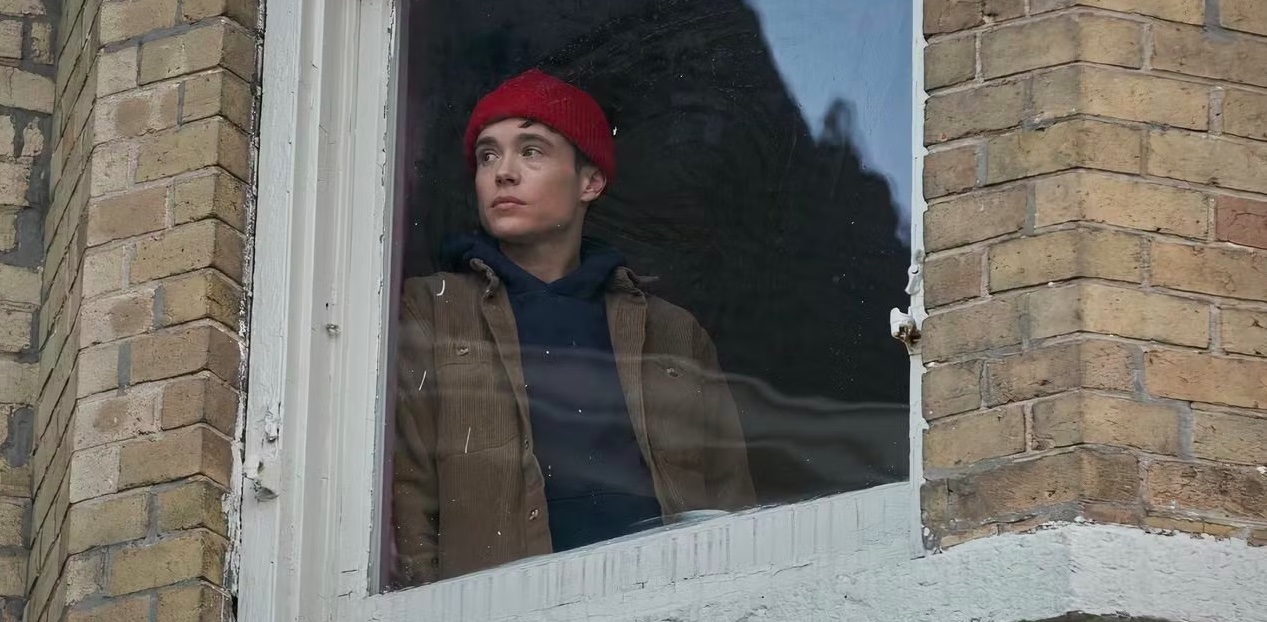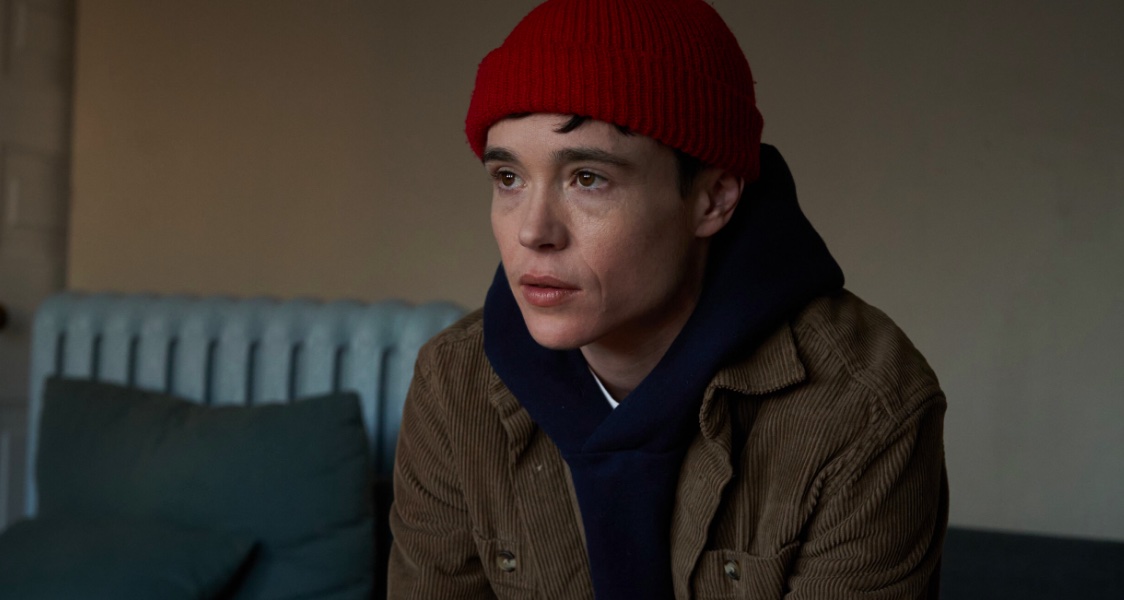Directed by Dominic Savage and starring Elliot Page, ‘Close to You’ follows the story of a trans-man named Sam who is returning home after spending several years away from his family and town. It is his father’s birthday and a chance to reconnect with his family, even though he knows just how uncomfortable things are possibly going to get. Still, it’s a step that he must take. Over the course of the film, we find all of Sam’s fears about the reunion come true, but at the same time, he also discovers a different side of his family and, particularly, a dear friend with whom he had lost touch over the years. What makes the story more impactful is the way the 2023 drama film was made and how realistically the filmmakers approached the story and the characters.
The Story Came Out of a Conversation Between the Filmmakers
‘Close to You’ is an entirely fictional film. The story for the movie was developed by Dominic Savage and Elliot Page. Page had seen Savage’s ‘I Am…’ and was deeply impressed by his approach towards filmmaking. The Oscar-nominated actor wanted to collaborate with Savage on the next project, but neither had any idea what it could be about. Their first meeting was on a Zoom call, but it was enough for them to realize that the interest in collaboration was deeply mutual. Over their succeeding conversations and meetings, Savage and Page talked about all sorts of things. They would brainstorm and exchange ideas until, eventually, they found a story within their conversations.

The actor and the director extensively discussed what they wanted the story to be about and where they wanted to take it. Once they had a general idea, Savage sat down to write the script, but he had a very unique approach to it. While he created the general structure of the story, he refrained from writing any dialogue. Rather, he would focus on setting up the scene and setting the intention for it. He wanted the film to feel as organic and the characters as real as possible. This could only happen if he allowed his actors the space to explore and experiment while also tapping into their own emotions and beliefs. Savage believed that writing down the dialogue for them would limit their imagination and effort, which is exactly the opposite of what he wanted from the film.
This isn’t the first time that Savage has adopted this approach, and he was at ease with the entire process. He would let the camera roll for as long as possible, giving the actors entire freedom to move about the space and create dialogue that would occur naturally rather than seem made-up. At one point, the actors did a 53-minute take of a scene, which, of course, was later edited, with most of the portion not even making it into the movie. However, these long takes helped the actors get a better grasp of their characters and allowed the story to evolve organically, which is also why Savage chose to shoot the entire film in chronological order. The director was poised to give complete freedom to his actors in terms of the places they wanted to take their characters and the story, and only an improvisational approach could allow him and his cast to do that.
Elliot Page’s Perspective Added Greater Depth to Sam’s Story
Sharing a similar situation with Sam, Elliot Page felt deeply in touch with the character. Because he had collaborated with Savage on the story, he could bring a lot of his own experience to Sam’s story. Still, there are some marked differences between the character and the actor, allowing Page to have the distance from Sam while also relating to him in some ways. To begin with, the familial dynamic shown in ‘Close to You’ is much different from what Page has in real life. In the movie, Sam’s family learns how to be supportive of their son without being hurtful about it. They were never meant to be portrayed as transphobic, but even in their well-intentioned nature, there were things that could hurt their son, and that formed the core of the narrative.

In his real life, Page experienced a greater pushback from his parents. His mother eventually came around, and the two are on much better terms now, with her becoming an ally to the queer community. His father, however, took a different route, which led Page and him to become estranged over the years. Speaking of his own experience, Page has talked about the importance of found family and the support he received from them during his own struggles. Perhaps it is this that brought the line “Family is not the most important thing” into the equation. Similarly, Page tapped into the commonality between his and Sam’s experiences to bring realistic dialogues and conversations into the story.
Another thing that helped Page during the film was his friendship with Hillary Baack, who pays Katherine, Sam’s school friend and love interest. Page talked about the equation they have shared over the years, having instantly connected while working on a project years ago. During the making of ‘Close to You,’ Baack’s presence as a friend and a co-actor was so strong that it would initiate unexpected responses from Page, giving more depth and meaning to Sam’s journey. So, even if the movie and its protagonist are not real, there are things that the audience can connect to on one level or another.
Read More: Best LGBTQ TV Series on Netflix


You must be logged in to post a comment.